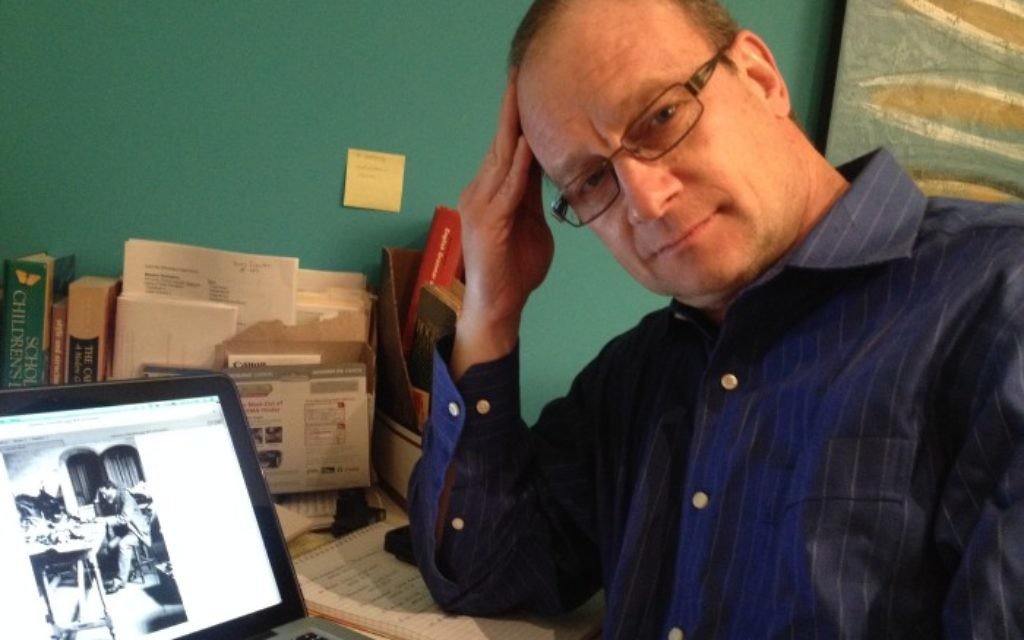Pray for President?
“Rabbi, may I ask you a question?”
“Certainly, Leibesh.”
“Is there a proper blessing for the tsar?”
Get The AJT Newsletter by email and never miss our top stories Free Sign Up
“A blessing for the tsar? Of course. May G-d bless and keep the tsar … far away from us!”
(From “Fiddler on the Roof”)
For centuries Jews have prayed for the welfare of rulers in the lands they inhabit.
Such prayers continue as the United States prepares for the Jan. 20 inauguration of Donald Trump as its 45th president (though the prayers’ fervency may depend on your politics).
Pirke Avot (Ethics of the Fathers) enjoins Jews to “pray for the welfare of the government, for were it not for the fear it inspires, every man would swallow his neighbor alive.”
Traditionally, this was achieved by reciting the Hanoten Teshu’ah La-Malakhim (He who gives dominion to kings), which dates to the 16th century.
But a new nation required prayers that spoke to independence, not subservience.
A prayer read in 1784 at New York’s Congregation Shearith Israel, the oldest (founded in 1654) congregation in the country, named, among others, Gen. George Washington of the Continental Army, who five years later was elected the first president.
That prayer said:
Mayest thou grant intelligence, wisdom and knowledge to our lords, the rulers of these thirteen states. … As Thou has granted to these thirteen states of America everlasting freedom, so mayest Thou bring us forth once again from bondage into freedom.
While many Orthodox congregations remain faithful to the Hanoten Teshu’ah (or a version modified to mention the United States and its leaders), there have been attempts to replace this prayer.
Tefilot Yisra’el (Prayers of Israel), published in 1848, offered the Ribon Kol Ha’Olamim (Master of the Universe), attributed to Rabbi Max Lilienthal, a German emigre and chief rabbi of three Orthodox congregations in New York.
Professor Jonathan Sarna of Brandeis University wrote that by “abandoning both the groveling tone and the sense of dependency reflected in Hanoten Teshu’ah, it radiates optimism and self-confidence.”
Among its verses:
Pour down the bounty of Your goodness upon the President, and the Vice President of the United States. Let their prosperity be like a river, their righteousness like the waves of the sea. In their days may kindness and truth meet each other, righteousness and peace kiss. Great shall be their honor; through Your help and in Your strength they will greatly exult.
In the current Reform prayer book, Mishkan T’filah, “For Our Country” includes these words:
Grant our leaders wisdom and forbearance,
May they govern with justice and compassion.
The prayers recited in most Conservative and Reconstructionist congregations drew inspiration, if not exact phrasing, from “A Prayer for the Government,” authored in 1927 by Talmudic scholar Louis Ginzberg, who wrote:
We invoke thy blessing upon our Country, on the government of this Republic, the President of these United States and all who exercise just and rightful authority. Do Thou instruct them out of Thy Law, that they may administer all affairs of state in justice and equity, that peace and security, happiness and prosperity, right and freedom may forever abide in our midst.
Unite in loyal and loving accord all the inhabitants of our country, so that men of all races and creeds may find in their common citizenship the bond of a true brotherhood which shall banish all hatred and bigotry and shall safeguard the ideals and free institutions which are our country’s pride and glory.
May this land under Thy providence be an influence for good throughout the world, uniting men in peace and freedom and helping to fulfill the vision of thine inspired Seers: “Nation shall not lift up sword against nation, neither shall men learn war any more.” (Isaiah 2:4)
These days, I find the need to “safeguard the ideals and free institutions which are our country’s pride and glory” (and envied by much of the world) particularly relevant.
Rather than petition for divine intervention to achieve the aims of “A Prayer for the Government,” Americans might be wise to take on that responsibility themselves.






comments